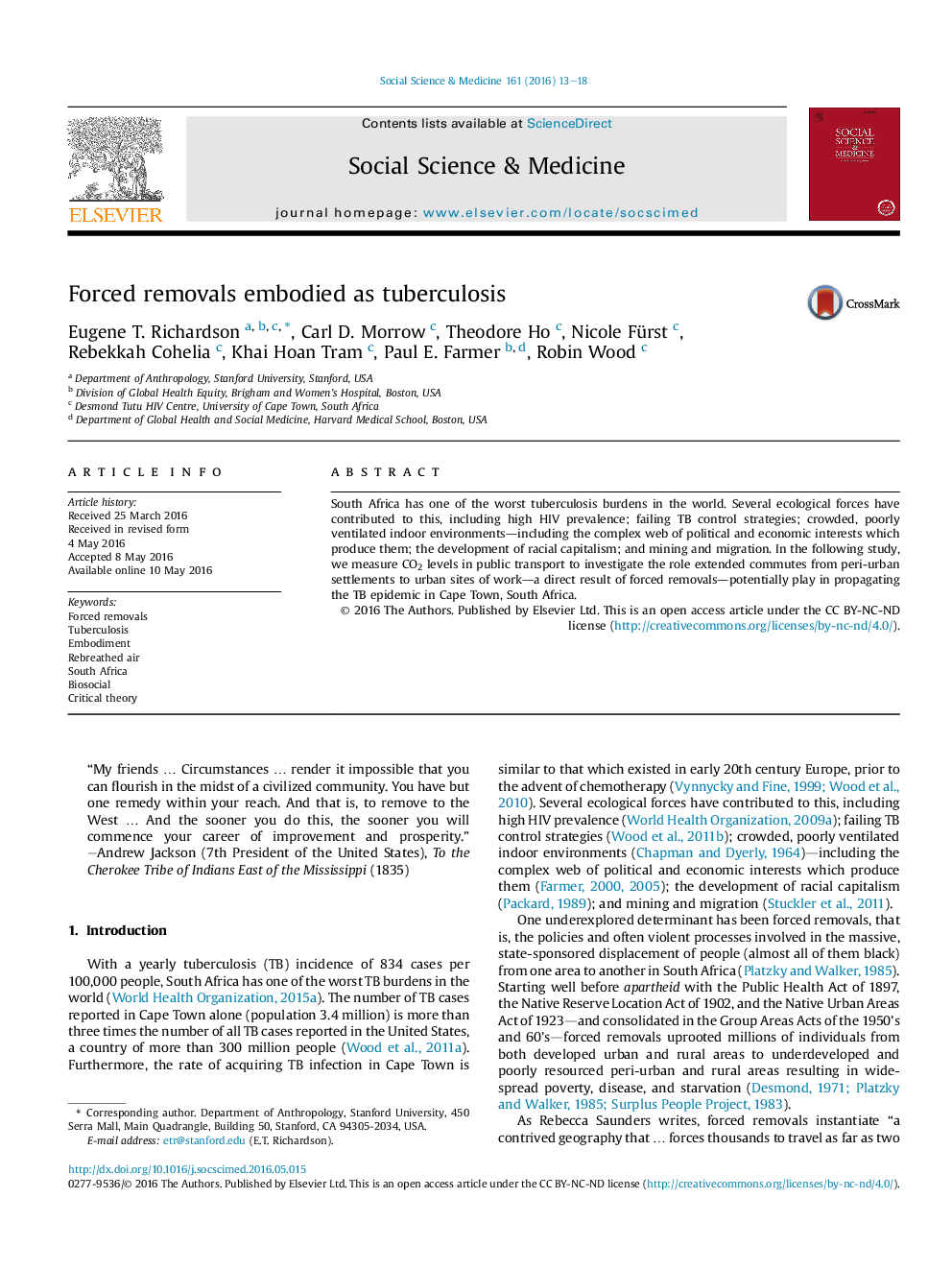| Article ID | Journal | Published Year | Pages | File Type |
|---|---|---|---|---|
| 7329761 | Social Science & Medicine | 2016 | 6 Pages |
Abstract
South Africa has one of the worst tuberculosis burdens in the world. Several ecological forces have contributed to this, including high HIV prevalence; failing TB control strategies; crowded, poorly ventilated indoor environments-including the complex web of political and economic interests which produce them; the development of racial capitalism; and mining and migration. In the following study, we measure CO2 levels in public transport to investigate the role extended commutes from peri-urban settlements to urban sites of work-a direct result of forced removals-potentially play in propagating the TB epidemic in Cape Town, South Africa.
Related Topics
Health Sciences
Medicine and Dentistry
Public Health and Health Policy
Authors
Eugene T. Richardson, Carl D. Morrow, Theodore Ho, Nicole Fürst, Rebekkah Cohelia, Khai Hoan Tram, Paul E. Farmer, Robin Wood,
